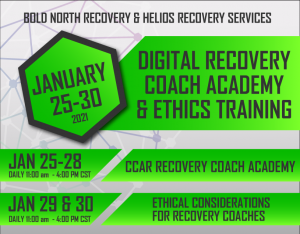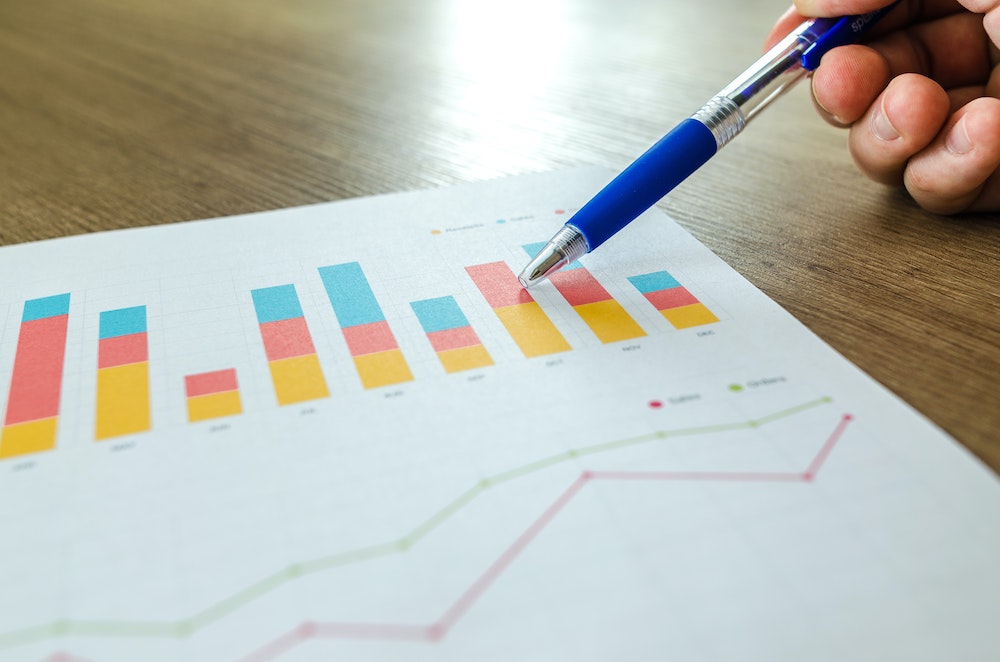Today, we are about 9 months into what is easily one of the most trying and difficult times our country and world has faced in a century. The COVID-19 pandemic resulted in physical distance requirements, and newfound levels of disconnection from regularly scheduled support systems. Reoccurrences of symptoms (or relapse), accidental overdoses, and suicide completions are more prevalent as a result. The whirlwind of political tension, economic crisis and social justice inequality only exacerbates these problems. It is all connected, and it is a lot to wade through. But the recovery community’s creativity, resilience and resourcefulness has allowed recovery to pivot, continue and thrive.
Moving Recovery Support Online
Within a short period of time, several resources and supports showed up on the scene to give people some type of recovery connection. This very website, In The Rooms, had a surge in membership practically overnight. Most mutual aid fellowships transitioned to digital platforms very quickly, and organizations such as Unity Recovery created meeting spaces as well.
Prior to March, I was working with an up-and-coming company called Telehealth Recovery Network. In my time with them, I started seeing the vast potential of connecting people on a digital platform and how this could expand the Recovery Coach workforce. Other companies, like Recovree and WeConnect, were emerging as well. Within weeks, there were several behavioral health, mental health and substance use related apps and platforms taking off, offering people hope, help and connection.
I believe the inherent values of resiliency and adaptability that folx in recovery embody and live made this possible. We saw an obstacle. We knew we still needed support and connection. So we created it.
Finding My Personality Type
Back before my days of coaching, I found myself, like many others, wanting to return to school to find out what I wanted to be when I grow up (still wondering). This led my counselor at the time to recommend a career development and analysis class at our local technical college. The course started with Myers-Briggs tests, to see what four-letter combination personality type would direct our research, and ultimately, seal the fate our next 10 to 30-year career path.
I don’t remember my exact letter combination, but personality and work-style testing would arise in many of my jobs in the years to come. And no, I don’t remember the results of those tests either.
Substance Use Counselor and Graphic Artist
Once the Myers-Briggs sorting hat put me in my place, I had to choose two careers under that category to look into. I chose Substance Use Counselor and Graphic Artist. Looking back, and knowing a lot more about the necessary skills for each career, I truly the question the validity of having these in the same category. Nevertheless, there must have been some reason for the correlation, since I felt compelled to check out both of them.
I recall seeing a number of people in early recovery aim to become AODA counselors. I think they felt that the gifts of service work and helping people were limiting for some. They thought this pathway would allow them to make a bigger impact in the world. I felt this way as well. I learned some things very quickly though. Firstly, school is hard, and does not match up with my learning style. Also, the counseling field did not look like it would satisfy my desire to work with people in a community-based setting.
Discovering my Strengths and Skills
But since that class in 2001, a key lesson stuck with me: SKILLS ARE TRANSFERABLE. In the process of learning more about my personality type, we also took several assessments to determine our strengths. We received charts and tables of the skills we might possess based on our personality type. At that time, I did not see what value I’d bring to any job. I couldn’t see the benefit of my service work with meetings. I didn’t know that my involvement as an activities chair—facilitating meetings, speaking, and starting up new groups—would be helpful.
When the instructor said those words about skills being transferable, I felt a shift in my perspective. Maybe putting in total effort, dedicating myself to my work, putting my recovery first and working on myself internally were skills that could apply to other areas of life. I think this is true for a lot of people.
This concept of transferable skills continues to grow for me. I incorporate it in the recovery coach academy trainings I facilitate. In trainings, I encourage participants to look at what skills they bring to the class, and ultimately, to their practice as a Coach. As I’ve discussed in previous blogs, an RCP is not only a motivator, resource broker, ally, and truth-teller. An RCP also possesses skills for healing centered engagement, servant leadership, emotional intelligence and cultural humility.
Recovery Capital
I recall when I first heard the phrase, “We provide the science; you make it your art,” in reference to what we learned in the RC training. I also invite coaches to extend this idea to the recoverees they go on to work with. When we truly meet people where they at and become students of their experience, we can help them see the many skills, assets, and strengths they inherently possess and can bring to their recovery journey. We can sum up this concept as Recovery Capital. Recovery Capital is the breadth and depth of resources available to us to initiate or sustain a recovery pathway. In William Whites paper Recovery Capital: A Primer for Addictions Professionals, he states:
“Personal recovery capital can be divided into physical and human capital. A client’s physical recovery capital includes physical health, financial assets, health insurance, safe and recovery-conducive shelter, clothing, food, and access to transportation. Human recovery capital includes a client’s values, knowledge, educational/vocational skills and credentials, problem solving capacities, self-awareness, self-esteem, self efficacy (self-confidence in managing high risk situations), hopefulness/optimism, perception of one’s past/present/future, sense of meaning and purpose in life, and interpersonal skills.”
He goes on to define other areas of Recovery Capital as well, including family/social, community and cultural. Recovery Capital is another great way to track growth and progress. We can use it as an alternative to simply measuring “clean time” or “sobriety”. Helping someone increase their capital or elevate their quality of life from a wholistic recovery perspective is a step in the direction of moving away from punitive, deficit-based systems.
Empathy still translates.
Our ability to be compassionate witnesses, navigate resources and guide people in their pathway is not lost in digital connections. Empathy still translates. If anything, we now have the opportunity to provide services, such as coaching and training, to those who couldn’t access a recovery center or training venue previously. In the last few months, I co-facilitated training that brought in participants from the U.S. and Canada. As long as we continue to utilize our adaptability, resiliency, fortitude and creativity, we can make strides forward in increasing recovery capital.
The Recovery Coach Connection
Over the last few weeks, some incredible guest speakers joined us at the Recovery Coach Connection meeting here on In The Rooms. Topics covered thus far include:
- How coaches can better support marginalized folx
- How to better support each other as coaches
- Learning about CCARs exponential growth
We will continue to meet on Monday nights at 9pm EST. We welcome Recovery Coaches, Peers or anyone interested in the field to join us!
Recovery Coach Academy & Ethics: January 25-20, 2021
 Helios Recovery Services is offering a Digital Recovery Coach Academy and Ethics training on January 25-30. This training includes core competencies for recovery coaches with additional training on ethics, boundaries, medication-assisted treatment, gambling, and more. Recognized as the original and leading recovery offering of its kind, the Recovery Coach Academy is an innovative new approach to healing people’s lives that is unlike any other training.
Helios Recovery Services is offering a Digital Recovery Coach Academy and Ethics training on January 25-30. This training includes core competencies for recovery coaches with additional training on ethics, boundaries, medication-assisted treatment, gambling, and more. Recognized as the original and leading recovery offering of its kind, the Recovery Coach Academy is an innovative new approach to healing people’s lives that is unlike any other training.
Who can become a Recovery Coach? Anyone interested in helping remove barriers and obstacles to recovery, while serving as a personal guide and mentor.
For more information and registration, please visit www.heliosrecovery.com.






